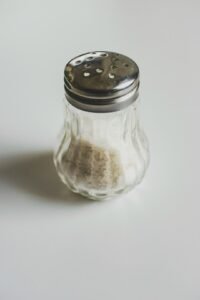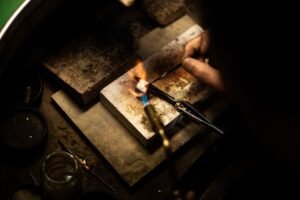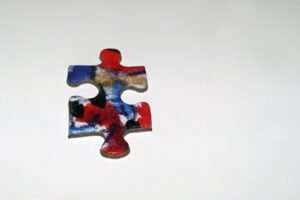Comprehensive Guide of Mixology
Overview
Mixology is the art and science of crafting cocktails and mixed drinks, combining various ingredients to create unique and flavorful beverages. This hobby allows enthusiasts to explore a wide range of spirits, liqueurs, bitters, and mixers, as well as to experiment with garnishes and presentation techniques. Mixology goes beyond simply mixing drinks; it involves understanding the balance of flavors, the chemistry of ingredients, and the history behind classic cocktails. Many mixologists take pride in their ability to create signature drinks that reflect their personal style and creativity, making it a rewarding and engaging pastime.
History
The history of mixology can be traced back to ancient civilizations, where fermented beverages were created for social and ceremonial purposes. The modern cocktail culture began to take shape in the 19th century, with the publication of the first cocktail recipe book, ‘The Bartender’s Guide’ by Jerry Thomas in 1862. This period saw the rise of classic cocktails such as the Martini, Old Fashioned, and Manhattan. Prohibition in the United States (1920-1933) led to a decline in cocktail culture, but it also spurred creativity as bartenders adapted to the underground scene. In recent decades, there has been a resurgence of interest in craft cocktails, with a focus on quality ingredients, artisanal techniques, and innovative flavor combinations.
Popularity and Demographics
Mixology has gained immense popularity in recent years, appealing to a diverse audience of all ages. According to industry reports, the craft cocktail movement has led to a significant increase in the number of cocktail bars and mixology classes worldwide. This hobby is particularly popular among millennials and Gen Z, who enjoy experimenting with new flavors and sharing their creations on social media platforms. Additionally, the rise of home bartending during the COVID-19 pandemic has encouraged many individuals to explore mixology as a fun and creative outlet. Online resources, such as tutorials and recipe websites, have made it easier for enthusiasts to learn and refine their skills, further contributing to the hobby’s growth.
Sponsored Hobbyists and Vendors
Become a Sponsor!
Affiliate Disclaimer: Throughout some sections below, Hobby Spotlight may suggest some tools, equipment or material using affiliate links. By purchasing any of those items, Hobby Spotlight may earn a small commission. This helps fund our website, content and services without directly charging our users.
Getting Started
Essential Bar Tools:
Beginner
- Cocktail Shaker Set: Basic cocktail shaker set for mixing drinks.
- Jigger: Measuring tool for accurate liquor portions.
- Muddler: Tool for muddling fruits and herbs in cocktails.
- Strainer: Strainer for filtering out solids from mixed drinks.
- Mixing Glass: Glass for stirring cocktails before serving.
Intermediate
- Bar Tool Set: Comprehensive set of tools for advanced mixology.
- Bitters Set: Variety of bitters for enhancing cocktail flavors.
- Ice Molds: Molds for creating large ice cubes for cocktails.
- Cocktail Recipe Book: Book with a variety of cocktail recipes and techniques.
- Garnish Tool: Tool for creating decorative garnishes for drinks.
Basic Requirements and Initial Setup:
- Bar Tools: Essential tools include a shaker, jigger, strainer, muddler, and bar spoon. These tools help in accurately measuring and mixing ingredients.
- Quality Ingredients: Stock a variety of spirits (vodka, gin, rum, whiskey), liqueurs, bitters, fresh fruits, herbs, and mixers (soda, tonic, juices) to create a wide range of cocktails.
- Glassware: Different cocktails require specific glassware, such as highball glasses, martini glasses, and rocks glasses, to enhance the drinking experience.
Fundamental Skills to Learn:
- Measuring and Pouring: Mastering the use of a jigger for precise measurements ensures balanced flavors in cocktails.
- Shaking and Stirring: Knowing when to shake or stir a drink affects its texture and dilution.
- Muddling: Properly muddling ingredients like herbs and fruits releases essential oils and flavors, enhancing the cocktail.
- Garnishing: Learning to garnish drinks creatively adds visual appeal and can enhance flavor profiles.
- Tasting and Adjusting: Developing a palate to taste and adjust cocktails for balance and flavor is crucial for a skilled mixologist.
Sub-Hobby/Common Activities:
- Cocktail Creation: Experimenting with different ingredients and techniques to develop unique cocktails.
- Classic Cocktail Mastery: Learning to prepare timeless cocktails like the Martini, Old Fashioned, and Mojito.
- Infusion and Flavoring: Creating infused spirits or flavored syrups to add depth to cocktails.
- Mocktail Preparation: Crafting non-alcoholic beverages that mimic the complexity of cocktails for all audiences.
- Mixology Competitions: Participating in events to showcase skills and creativity in cocktail making.
Terminology:
- Bitters: Concentrated flavoring agents made from herbs, spices, and other botanicals, used to enhance cocktails.
- Neat: A term used to describe a spirit served straight from the bottle without ice or mixers.
- Shaken: A method of mixing cocktails by shaking them with ice in a shaker to chill and dilute.
- Stirred: A technique for mixing cocktails gently with ice to chill without excessive dilution.
- Muddle: To crush ingredients, typically fruits or herbs, to release their flavors in a cocktail.
- Garnish: An ingredient added to a cocktail for decoration and flavor enhancement, such as citrus peels or herbs.
- On the Rocks: A term for serving a drink over ice.
- Layering: The technique of pouring liquids of different densities to create visually appealing layers in a cocktail.
- Mixology: The art and science of crafting cocktails, focusing on flavor combinations and presentation.
- Highball: A type of cocktail served in a tall glass, typically consisting of a spirit and a larger proportion of mixer.
Advanced Topics and Specializations
Advanced Tools and Equipment:
- Professional Cocktail Shaker Set: A complete set including a shaker, jigger, strainer, and bar spoon for crafting high-quality cocktails.
- Precision Digital Scale: A high-accuracy scale for measuring ingredients with precision, essential for creating balanced cocktails.
- Infusion Kit: A kit designed for infusing spirits with flavors using herbs, fruits, and spices for unique cocktail creations.
- Luxury Glassware Set: Elegant glassware designed for specific cocktails, enhancing the drinking experience and presentation.
- Sous Vide Precision Cooker: A device for precise temperature control, ideal for creating infused spirits and cocktails with consistent results.
Advanced Projects and Achievements:
- Signature Cocktail Creation: Developing a unique cocktail that showcases personal style and creativity, often featuring house-made syrups or infusions.
- Mixology Competitions: Participating in local or national competitions to demonstrate skills, creativity, and knowledge of cocktail crafting.
- Bar Setup and Design: Designing and building a home bar that reflects personal taste, including selecting glassware, tools, and decor.
Advanced Techniques and Methods:
- Infusion Techniques: Creating flavored spirits by infusing herbs, fruits, or spices into alcohol, enhancing the complexity of cocktails.
- Carbonation Methods: Utilizing carbonation techniques, such as soda siphons or carbonation drops, to add effervescence to cocktails.
- Classic Techniques: Mastering traditional methods like shaking, stirring, muddling, and layering to achieve the perfect cocktail texture and presentation.
Specializations and Niche Areas:
- Craft Cocktails: Focusing on high-quality ingredients and artisanal techniques to create unique and flavorful drinks.
- Non-Alcoholic Mixology: Developing sophisticated mocktails that provide the same complexity and enjoyment as traditional cocktails without alcohol.
- Seasonal Cocktails: Creating drinks that highlight seasonal ingredients, ensuring freshness and relevance throughout the year.
- Classic Cocktails Revival: Reviving and modernizing classic cocktails, paying homage to historical recipes while adding a contemporary twist.
- Global Mixology: Exploring and incorporating international flavors and techniques from various cultures into cocktail recipes.
Future Trends and Innovations:
- Increased focus on sustainability, with bartenders sourcing local and organic ingredients.
- Growing popularity of low-alcohol and alcohol-free options as consumers seek healthier choices.
- Integration of technology in cocktail creation, such as apps for recipe sharing and virtual mixology classes.
- Experimentation with molecular mixology techniques to create innovative textures and presentations.
- Emphasis on personalized experiences, with bartenders tailoring cocktails to individual preferences and dietary needs.
Technology Integrations:
- Smart Bar Tools: Utilizing digital jiggers and thermometers for precise measurements and temperature control.
- Recipe Apps: Mobile applications that provide access to a vast database of cocktail recipes and allow users to create shopping lists.
- Virtual Reality Experiences: Offering immersive training sessions for aspiring mixologists to practice skills in a virtual environment.
- Online Mixology Courses: Providing accessible education through video tutorials and live classes, enhancing skills from home.
- Social Media Platforms: Leveraging platforms like Instagram and TikTok to share cocktail creations and engage with a community of enthusiasts.
Further Learning and Resources
Books:
- The Joy of Mixology by Gary Regan: An accessible introduction to the world of cocktails, offering essential techniques and recipes for beginners.
- Shake. Stir. Sip. by Kara Newman: A beginner-friendly guide that covers the basics of cocktail making, including tips on tools and ingredients.
- The Bar Book by Jeffrey Morgenthaler: An informative guide that breaks down the fundamentals of bartending, with clear instructions and recipes for newcomers.
- The Craft of the Cocktail by Dale DeGroff: A comprehensive resource for serious cocktail enthusiasts, featuring advanced techniques and a wide range of classic recipes.
- Liquid Intelligence by Dave Arnold: An in-depth exploration of the science and techniques behind modern mixology, perfect for those looking to elevate their skills.
- The PDT Cocktail Book by Jim Meehan: A sophisticated collection of recipes and techniques from one of the top cocktail bars, ideal for advanced mixologists.
Websites:
- Liquor.com, https://www.liquor.com – A comprehensive resource for cocktail recipes, bartending tips, and industry news.
- Difford’s Guide, https://www.diffordsguide.com – Offers an extensive collection of cocktail recipes, reviews, and bartending techniques.
- Imbibe Magazine, https://www.imbibemagazine.com – Focuses on the culture of drinks, featuring recipes, articles, and trends in mixology.
- Craft Cocktail Club, https://www.craftcocktailclub.com – A subscription service that provides cocktail recipes and curated ingredients for home mixologists.
- Barrel & Bottle, https://www.barrelandbottle.com – Features unique cocktail recipes and insights into spirits and mixology techniques.
Courses:
- MasterClass: Mixology with Lynnette Marrero and Ryan Chetiyawardana, https://www.masterclass.com/classes/mixology-with-lynnette-marrero-and-ryan-chetiyawardana – Learn the art of cocktail making from two renowned mixologists, covering both classic and innovative drinks.
- Udemy: The Complete Mixology Course, https://www.udemy.com/course/the-complete-mixology-course/ – A beginner-friendly course that teaches essential bartending skills and cocktail recipes.
- Skillshare: Mixology 101, https://www.skillshare.com/classes/Mixology-101-Learn-to-Make-Cocktails-at-Home/123456 – An introductory course focusing on basic cocktail techniques and recipes for home bartenders.
- Coursera: The Science of Mixology, https://www.coursera.org/learn/mixology – Explore the chemistry behind cocktails and learn how to create balanced drinks.
- BarSmarts: BarSmarts Advanced, https://www.barsmarts.com – A professional-level course designed for those looking to deepen their knowledge of spirits and advanced mixology techniques.
Content Creators and Community
Content Creators:
- Steve the Bartender (YouTube): A mixology expert sharing cocktail recipes, bartending tips, and techniques to elevate your home bar experience.
- Mixology 101 (Instagram): A popular account featuring creative cocktail recipes, bartending hacks, and stunning drink photography.
- The Educated Barfly (YouTube): Offers in-depth cocktail tutorials, barware reviews, and insights into the history of classic drinks.
- Cocktail Chemistry (TikTok): Engaging short videos showcasing innovative cocktail recipes and fun mixology experiments.
- How To Drink (YouTube): A channel dedicated to teaching viewers how to make cocktails, mocktails, and other beverages with a fun twist.
- Bartender HQ (Instagram): A community-driven account sharing cocktail recipes, bartending tips, and industry news for aspiring mixologists.
- The Crafty Bartender (YouTube): Focuses on craft cocktails, providing tutorials on unique recipes and creative presentation techniques.
Online Forums and Social Media Groups:
- Reddit – /r/Cocktails: A vibrant community for sharing cocktail recipes, tips, and discussions about mixology.
- Facebook Mixology Groups: Various groups where enthusiasts exchange recipes, techniques, and experiences.
- Mixology Discord Servers: Interactive platforms for real-time discussions, recipe sharing, and community support.
- Instagram Hashtags (#mixology, #cocktailrecipes): Follow trending cocktail creations and mixology inspiration.
- Pinterest Boards: Explore a plethora of cocktail recipes and mixology ideas curated by passionate bartenders and enthusiasts.
Local Clubs and Organizations:
- Local Bartending Schools: Many cities offer classes and workshops for aspiring mixologists to learn the craft.
- Community Mixology Clubs: Groups that meet regularly to share recipes, techniques, and host tasting events.
- Spirits and Cocktail Associations: Organizations that promote education and networking among mixology professionals and enthusiasts.
- Meetup Groups: Platforms like Meetup.com host local mixology clubs and cocktail tasting events.
- Home Bar Enthusiasts: Local clubs focused on building and sharing knowledge about home bar setups and cocktail crafting.
Events, Meetups, and Conventions:
- Bar Convent Brooklyn: An annual event showcasing the latest trends in the spirits and cocktail industry with workshops and tastings.
- Local Cocktail Competitions: Regional contests that encourage creativity and skill development among mixologists.
- Food and Drink Festivals: Many festivals feature mixology demonstrations, tastings, and classes led by industry professionals.
- Workshops at Culinary Exhibitions: Opportunities to learn from expert mixologists and enhance your cocktail-making skills.
- Mixology Conferences: Events that bring together bartenders, brands, and enthusiasts for networking, education, and product showcases.
Associated Hobbies
- Cocktail Creation: The art of crafting unique and flavorful cocktails is at the heart of mixology. Enthusiasts experiment with various ingredients, techniques, and presentation styles to create signature drinks that impress guests.
- Flavor Pairing: Understanding how different flavors interact is crucial in mixology. Hobbyists often explore the science of taste, learning which ingredients complement each other to enhance the overall drinking experience.
- Bar Equipment Knowledge: Mixologists become familiar with various tools and equipment, such as shakers, jiggers, muddlers, and strainers. Collecting and mastering the use of these tools can be a rewarding aspect of the hobby.
- Garnishing Techniques: The visual appeal of a cocktail is important, and many mixologists take pride in their garnishing skills. This can include creating intricate fruit carvings, using herbs, or employing creative glassware.
- Home Bar Setup: Many mixology enthusiasts enjoy designing and stocking their own home bar. This involves selecting a variety of spirits, mixers, and garnishes, as well as creating an inviting space for entertaining.
- Mixology Classes: Participating in mixology classes or workshops can enhance skills and knowledge. These classes often cover cocktail history, techniques, and trends, providing a structured way to learn the craft.
- Seasonal Cocktails: Mixologists often create cocktails that reflect the seasons, using fresh, seasonal ingredients. This practice not only enhances flavor but also encourages creativity and experimentation.
- Mocktail Development: With the rise of non-alcoholic beverages, many mixologists explore the creation of mocktails. This involves crafting flavorful, alcohol-free drinks that appeal to a wide audience, making the hobby inclusive.
Cost and Budgeting
Initial Investment and Ongoing Costs:
- Initial Investment: To start mixology, you can expect to invest between $100 and $500. This includes essential tools such as a shaker, jigger, strainer, muddler, and a selection of basic spirits like vodka, gin, rum, tequila, and whiskey. Additionally, you may want to purchase mixers, bitters, and garnishes, which can add to the initial cost.
- Ongoing Costs: Ongoing expenses will primarily consist of replenishing your stock of spirits, mixers, and garnishes. Depending on your consumption and the variety of cocktails you wish to create, this can range from $20 to $100 per month. If you choose to attend mixology classes or workshops, those can also add to your ongoing costs.
Budget-Friendly Options:
- Home Bar Essentials: Start with a few essential spirits and mixers rather than a full bar. Focus on versatile ingredients that can be used in multiple cocktails, such as gin, vodka, and tonic water.
- DIY Mixers: Create your own mixers and syrups at home using simple ingredients like sugar, fruit, and herbs. This not only saves money but also allows for customization.
- Attend Free Workshops: Look for free mixology workshops at local liquor stores or community centers. These can provide valuable knowledge without the cost of formal classes.
Where to Buy:
- Local Liquor Stores: These stores often have a wide selection of spirits and mixers, and staff can provide recommendations based on your needs.
- Online Retailers: Websites like Drizly and Total Wine offer a vast selection of spirits and mixers, often with delivery options available.
- Kitchen Supply Stores: Stores like Bed Bath & Beyond or Williams Sonoma carry essential mixology tools and barware, making it easy to find what you need to get started.
Money Making
How to Turn the Hobby into a Profession or Side Hustle:
- Professional Mixologist: Become a certified mixologist by attending bartending school or taking mixology courses. Work in high-end bars, restaurants, or hotels, where you can showcase your skills in crafting unique cocktails and providing exceptional customer service.
- Cocktail Catering Service: Start a cocktail catering business for events such as weddings, corporate parties, and private gatherings. Create customized drink menus and offer a full-service experience, including bartending staff and equipment rental, to make events memorable.
- Mixology Classes: Share your knowledge by offering mixology classes to individuals or groups. You can host these classes in-person or online, teaching participants how to create classic cocktails, experiment with flavors, and understand the art of presentation.
- Recipe Development and Blogging: Start a blog or social media account dedicated to mixology, where you can share your original cocktail recipes, tips, and techniques. Monetize your platform through sponsored posts, affiliate marketing, and partnerships with beverage brands.
- Craft Cocktail Kits: Create and sell craft cocktail kits that include all the ingredients and tools needed to make specific cocktails at home. This can cater to individuals looking to enhance their home entertaining experience or gift options for cocktail enthusiasts.
Benefits and Enjoyment
Physical, Mental, and Social Benefits:
- Physical Coordination: Mixology requires a good deal of physical coordination, from measuring ingredients accurately to shaking and stirring cocktails. This can enhance fine motor skills and hand-eye coordination.
- Mental Stimulation: The art of mixology involves creativity and problem-solving, as you experiment with flavors and techniques. This mental engagement can improve cognitive function and keep the mind sharp.
- Social Interaction: Mixology is often a social activity, whether you’re hosting a cocktail party or attending a bar. It fosters connections with others, encourages conversation, and can create a fun and lively atmosphere.
Success Stories and Inspirational Examples:
- Ryan Chetiyawardana: Known as ‘Mr. Lyan’, Ryan is a world-renowned bartender and mixologist who has won numerous awards for his innovative cocktails. He has opened several successful bars and authored cocktail books, inspiring many with his creativity and passion for mixology.
- Julie Reiner: A pioneer in the craft cocktail movement, Julie Reiner has made significant contributions to the industry. She co-owns several acclaimed bars and has been recognized for her expertise and dedication to elevating the art of cocktail making.
- David Wondrich: An influential cocktail historian and author, David Wondrich has played a crucial role in reviving classic cocktails and educating others about the history and techniques of mixology. His work has inspired countless enthusiasts to explore the world of cocktails.
Ways to Enjoy and Grow in the Hobby:
- Experiment with Ingredients: Don’t be afraid to try new flavors and ingredients. Experimenting with different spirits, mixers, and garnishes can lead to unique and delicious cocktails, enhancing your skills as a mixologist.
- Take Mixology Classes: Enroll in local or online mixology classes to learn from experienced bartenders. These classes can provide valuable insights into techniques, flavor pairings, and presentation, helping you to refine your craft.
- Host Cocktail Parties: Organize gatherings where you can showcase your mixology skills. This not only allows you to practice but also provides an opportunity to share your passion with friends and family, creating memorable experiences.
Challenges and Solutions
Common Challenges Faced by Hobbyists:
- Cost of Ingredients and Equipment: Mixology can require a variety of spirits, mixers, and tools, which can add up quickly. Hobbyists may find it challenging to invest in high-quality ingredients and equipment without overspending.
- Skill Development: Mastering the art of mixology takes time and practice. Beginners may struggle with techniques, flavor balancing, and presentation, leading to frustration and discouragement.
- Access to Quality Ingredients: Depending on location, hobbyists may have difficulty finding specific spirits, bitters, or fresh ingredients, which can limit their ability to experiment with new recipes.
Tips for Overcoming These Challenges:
- Start with the Basics: Focus on building a core collection of essential spirits and mixers. This approach allows you to create a wide range of cocktails without needing to purchase every ingredient available.
- Practice Regularly: Set aside time each week to practice your mixology skills. Experiment with different recipes and techniques to build confidence and improve your abilities over time.
- Join a Community: Engage with local or online mixology communities. Sharing experiences, tips, and resources can help you discover new ingredients and techniques while providing support and motivation.
Safety Considerations and Best Practices:
- Always drink responsibly and know your limits to ensure a safe and enjoyable experience for yourself and others.
- When hosting gatherings, provide non-alcoholic options for guests who may not wish to consume alcohol.
- Be aware of local laws regarding alcohol consumption and ensure you are of legal drinking age.
- Keep your workspace clean and organized to prevent accidents, especially when using sharp tools like cocktail shakers or knives.
- Educate yourself about the effects of different spirits and mixers, especially if you are mixing cocktails for others, to ensure everyone’s safety and enjoyment.
Conclusion and Encouragement
Recap of Key Points:
- Mixology is the art and science of crafting cocktails, combining flavors, and creating unique drink experiences that can impress friends and elevate gatherings.
- Understanding the fundamentals of mixology, including the types of spirits, mixers, and garnishes, is essential for creating balanced and flavorful cocktails.
- Mixology encourages creativity, allowing you to experiment with different ingredients and techniques to develop your signature drinks.
- It can be a social hobby, perfect for entertaining guests, hosting parties, or simply enjoying a quiet evening at home while honing your skills.
- Mixology can lead to professional opportunities, whether as a bartender, cocktail consultant, or even starting your own beverage-related business.
Encouragement to Start and Enjoy the Hobby:
- Mixology is an accessible hobby that anyone can start with just a few basic tools and ingredients. You don’t need to be a professional bartender to create delicious cocktails at home.
- It’s a fantastic way to impress friends and family at gatherings. By mastering a few classic cocktails, you can elevate any social event and create memorable experiences.
- Mixology allows for personal expression and creativity. You can tailor drinks to suit your taste preferences or those of your guests, making each cocktail unique and special.
Final Tips and Motivational Thoughts:
- Always practice responsible drinking. Enjoy your creations, but be mindful of your limits and those of your guests to ensure a safe and enjoyable experience.
- Keep learning and experimenting. The world of mixology is vast, with endless recipes and techniques to explore. Attend workshops, read books, or watch tutorials to expand your knowledge.
- Share your passion with others. Host cocktail-making nights with friends or family, and encourage them to join you in discovering the joys of mixology together.

















